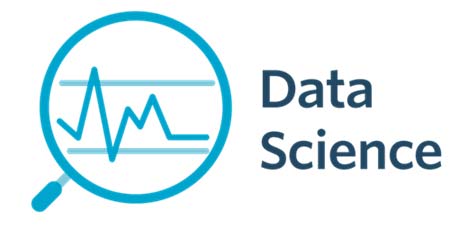Data Science is one of the trendiest careers in the recent years. The field of data science is gaining a lot of popularity among many students in today’s technology industry. There are some important job roles that are very crucial for a Data Science Graduate.
Let’s discuss a few of them in this article so that we can have a better understanding of the career as a data scientist. Let’s understand the roles and responsibilities of some of the important careers or job roles available in the field of data science.
Data Analyst
As a Data Analyst one is responsible to show high level of analytical skills and are also expected to have strong mathematical skills with the curious and inquisitive skills.
Role of a Data Analyst
As a Data Analyst one is required to be highly organised in his/her work profile. They are required to understand and interpret the data in order to come out with clear visual written and communication.
Types of Data Analyst
As a Data Analyst one will be working in the following areas:
- Business Intelligence
- Data Assurance
- Data Quality
- Finance
- Higher Education
- Marketing
- Sales
Responsibilities of a Data Analyst
As a data analyst one is responsible to:
- Develop records management processes and policies
- Identify areas to increase efficiency and automation of processes
- Setup and maintain automated data processes
- Identify, evaluate and implement external services and tools to support data validation and cleansing
- Produce and track key performance indicators
- Develop and support reporting processes
- Monitor and audit data quality
- Coordinate with internal and external clients to fully understand data content
- Gather, understand and document detailed business requirements using appropriate tools and techniques
- Design and carry out surveys and analyse survey data
- Manipulate, analyse and interpret complex data sets relating to the employer’s business
- Prepare reports for internal and external audiences using business analytics reporting businesses
Data Scientist
As a Data Scientist one is responsible to interpret the obtained raw data into meaningful information so that the organisations can use it to improve their businesses and strategies.
Role of Data Scientist
As a Data Scientist one is required to extract, analyse and interpret large amounts of data from a range of sources using algorithms, data mining techniques, artificial intelligence, machine learning and statistical tools.
Types of Data Scientist
As a data scientist one will be working in range of areas like:
- Finance
- Academia
- Scientific research
- Health
- Retail
- Information Technology
- Government
- E-Commerce
Responsibilities of a Data Scientist
As a Data Scientist one is required to
- Work closely with business to identify issues and use data to propose solutions
- Build algorithms and design experiments to merge, manage, interrogate and extract data to supply tailored reports to colleagues, customers or the wider organisation
- Use machine learning tools and statistical techniques to produce solutions to problems
- Test data mining models to select the most appropriate one for use on a project
- Maintain clear and coherence communication, both verbal and written, to understand data needs and report results
- Assess the effectiveness of data sources and data gathering techniques and improve data collection methods
- Horizon scan to stay up to date with the latest technology techniques and methods
- Conduct research from which you will be prototypes and proof of concepts
- Look for opportunities to use insights/datasets/code/models across other functions in the organisation for example in the HR and marketing departments
- Stay curious and enthusiastic about algorithms to solve problems and enthuse others to see the benefit of the work
Database Administrator
As a Database Administrator one is required to have an in-depth knowledge of using specialist software to organise and maintain a secure database
Roles of a Database Administrator
As a database administrator one is responsible to maintain performance, integrity and security of a database. As a database administrator one will be involved in planning and development of the database. He/she is also responsible for troubleshooting issues related to databases.
Types of Database Administrator
As a database administrator one will work and ensure that:
- Data remains consistent across the database
- Data is clearly defined
- Users access data concurrently in a form that suits for needs
- There is a provision for data security and recovery control
Responsibilities of Data Administrator
As a Data Administrator one is needed to:
- Establish the needs of users and monitor user access and security
- Monitor performance and manage parameters in order to provide fast responses to front end users
- Map out the conceptual design for a planned database
- Consider both back-end organisation of data and front-end accessibility for end-users
- Refine the logical design so that it can be translated into a specific data model
- Further refining the physical to meet system storage requirements
- Install and test new versions of the database management system
- Maintain standards, including adherence to the data protection act
- Write database documentation, including data standards, procedures and definitions for the data dictionary
- Develop, manage and test backup and recovery plans
- Ensure that storage and archiving procedures are functioning correctly
- Work closely with IT project managers, database programmes and multimedia programmes
Data Statistician
As a Data Statistician one is responsible to deal with data and help to field practical solutions of problems.
Role of Data Statistician
As a Data statistician one is responsible to design and manage experiments and surveys and deal with the initial collection data.
Types of Data Statistician
As a Data Statistician one will be working in different sectors such as:
- Education
- The Environment
- Finance
- Forensics
- Government
- Health
- Market Research
- Sport
- Transportation
Responsibilities of a Data Statistician
As a Data Statistician one is needed to:
- Consult with clients and agreeing what the data to collect and how it should be gathered- taking account of any ethical and legislative considerations
- Designing experiments, trials or surveys to produce the required data
- Collecting and analysing the data
- Interpreting the data collected throughout its shelf life
- Presenting results to others such as senior managers, regulatory authorities on the results
- Monitoring data collected throughout its shelf life
- Carrying out research often as a part of a team
- Writing reports and articles for publication
- Providing projections of future results and try to improvise efficiency towards the projected results
Concluding Lines
The demand for B.Sc Data Science students has witnessed a lot of popularity in the tech world in the last 5-10 years. Data science is the one of the trendiest careers in the technology world. Everyday millions of bytes of data is produced in raw format. The skilled professionals are required to interpret this raw data. The data science students are the skilled professionals who have the expertise and technicalities of interpreting this raw data. The B.Sc Data Science students are readily hired in the industry by different recruiters for handsome salaries.
The students who are interested in data analysis can join B.Sc Data Science course and land lucrative jobs in the industry and expect excellent career growths.





